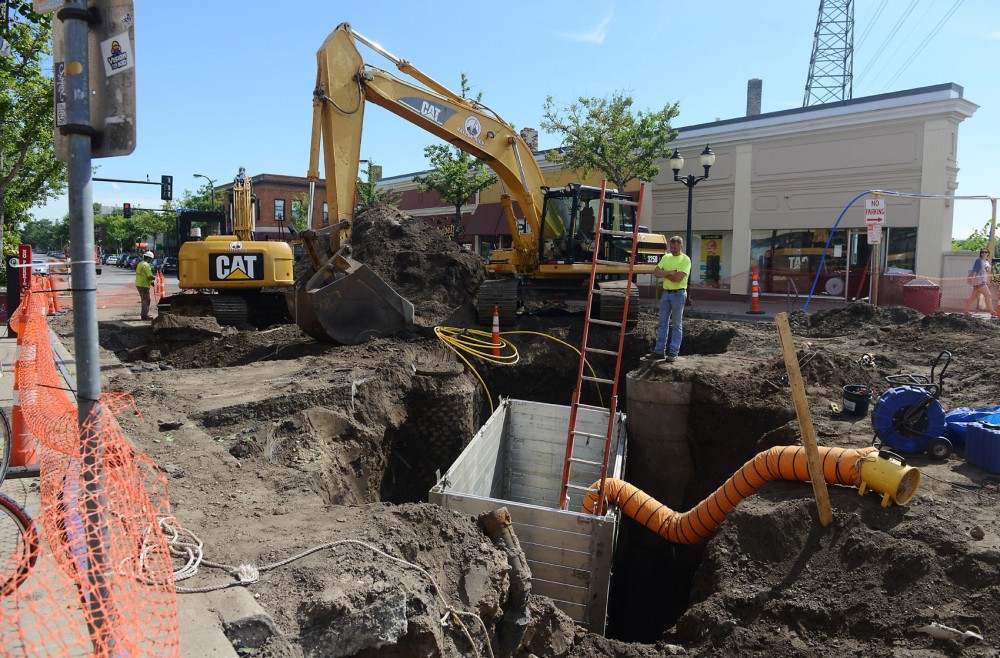A piece of Dinkytown infrastructure is changing hands, a transition local businesses say is overdue.
Beneath 14th Avenue Southeast, crews are renovating a sewer line before the City of Minneapolis takes ownership. Construction is expected to be complete within two weeks.
The surrounding landlords currently own the sewer line and have been pushing the city to take control for years.
City spokesman Casper Hill said the sewer line dates back to the early 20th century. Some of the pipes even collapsed about 10 years ago, causing hot water shortages and bathroom back-ups.
Dinkytown Business Association President Skott Johnson said construction has interfered with some surrounding businesses by blocking entrances and interfering with outdoor seating.
“They’re managing,” he said. “It’s not great.”
Johnson said businesses fear that, without a renovation, further damage could be done.
John Rimarcik, owner of the building housing the Kitty Cat Klub and Annie’s Parlour, said he’s been paying to maintain the sewer for years and will have to pay more than the city estimate shows.
The current reconstruction project already has property owners paying nearly $92,000 of the project’s $129,000 total cost, Hill said, with the city paying the remainder.
But Rimarcik said landlords who own property attached to the sewer line will have to pay $40,000-50,000 in additional expenses for things like reconnecting the businesses to the sewer line.
Neither businesses nor the city knew the sewer was privately owned until a few years ago, Rimarcik said, adding the city should’ve taken over the line years ago.
“It was irresponsible of the city not to take an ownership position,” he said.
Full repair was previously too expensive, so the landlords settled for temporary fixes instead of a complete reconstruction.
A previous Minnesota Daily article said property owners for Annie’s Parlour and Loring Pasta Bar each paid between $8,000-12,000 during a six-year period after the pipes burst because they couldn’t get the city to take on costs or responsibility for the sewer.
“We were upset before,” he said. “We’re still upset.”








